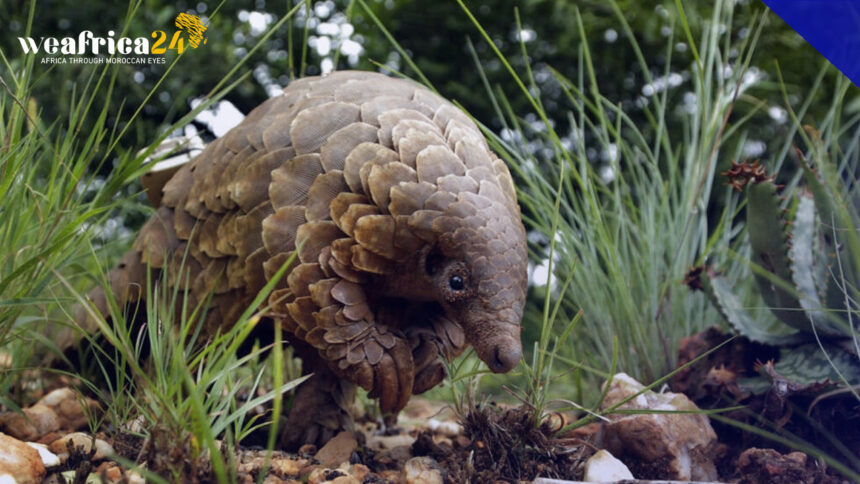Despite its scales and defensive technique, the pangolin remains the most poached mammal globally, often falling victim to wildlife trafficking. According to the Regional Observatory on Organized Crime (ENACT), Central Africa is becoming a crucial hub for pangolin trafficking.
While pangolins are theoretically protected animals with trade banned since 2017, the illicit trade continues to thrive. Oluwole Ojewale, Regional Coordinator for Central Africa at the Institute for Security Studies, revealed in a 2023 study on pangolin trafficking in Enact Africa that this illegal trade generates millions of dollars.
Currently, eight pangolin species are known globally, with four in Asia and four in Central Africa. The Congo Basin forest, the world’s second-largest tropical forest, shared among six countries – Cameroon, the Central African Republic, the Republic of Congo, the Democratic Republic of the Congo, Gabon, and Equatorial Guinea – harbors a significant population of pangolins.
Despite being a customary source of protein for villagers, the pangolin faces alarming levels of poaching. The intensity of this poaching has surged in recent years, driven by demand from Asian countries, particularly China and Vietnam, where pangolin meat and scales are highly prized as delicacies or for traditional medicine.
Unlike elephants or rhinoceroses, pangolins are relatively easy to poach. When approached by predators, they curl up into a ball, facilitating capture. Villagers then sell them to intermediaries.
These mammals, whether whole or butchered, exit the continent through port routes, either via Nigeria to the west or via Tanzania and Kenya to the east, or by air. For instance, in Cameroon, several journalists, including Mathias Mouende Ngamo from the daily newspaper Le Jour, investigated this trafficking as part of the #Odaca project supported by Data Cameroon. Ngamo reported, “For example, at the airport, a customs officer revealed that traffickers sometimes grind the scales into powder and pack them in milk cartons to pass through customs unnoticed.”
According to the investigation’s authors, “Central African states lose an average of 419 billion CFA francs annually due to the trafficking of this protected Class A species.” Additionally, “Ethiopian Airlines is reportedly the leading clandestine transporter of pangolin scales to transit countries and Asia, the final destination.”







